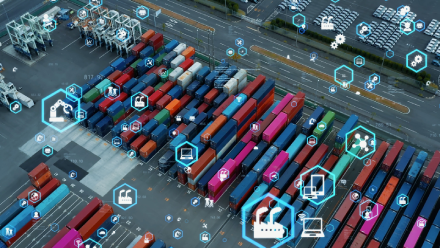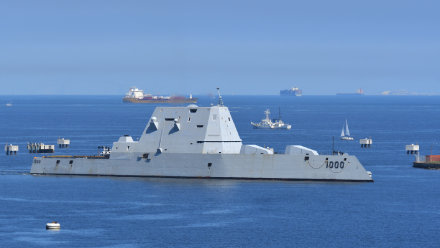Decarbonising the maritime sector: methanol makes it mark
With regulations surrounding maritime emissions becoming more stringent, alternative fuels such as methanol could offer a workable solution for engine manufacturers such as Wärtsilä.
The pressure to decarbonise the shipping sector is on. In 2023, the International Maritime Organization (IMO) adopted a strategy for reducing greenhouse gas emissions from ships. In 2024, the EU extended its Emissions Trading System (ETS) to cover carbon dioxide emissions from all large ships, with further expansion into domestic maritime from 2026. Methane and nitrous oxide emissions will be integrated into the System in 2026. Other nations are also considering their own regulations.
For ship owners, “Waiting is the worst thing you could do,” says Mikael Wideskog, Director of Sustainable Fuels and Decarbonisation at Wärtsilä. “This is coming, and it’s coming with speed.”
Read more: EU brings shipping into the Emissions Trading System
A methanol solution
Wärtsilä has been one of the earliest adopters of alternative fuels and other solutions to reduce the maritime industry’s carbon footprint. They are one of the few companies developing methanol as a maritime fuel.
“We started in 2015 with the conversion of the [roll-on/roll-off passenger] vessel the Stena Germanica,” says Wideskog. “After that, we had no other business for methanol.”
The reasons for the lack of uptake in methanol primarily come down to three factors. First, methanol suitable for marine engine use was not readily available. Second, the price was substantially higher than marine diesel. Third was the sustainability aspect. The greenhouse gas emissions of methanol primarily arise from its production – unfortunately, at the time, methanol production used fossil fuels.
Today, suitable methanol is more readily available, and the price is more interesting. Moreover, methanol can be produced with renewable energy. This ‘green methanol’ is a viable low-carbon option.
Together with the growing recognition that reducing greenhouse gasses is essential and incoming regulations, the demand for methanol-based solutions is increasing.
“We knew that the demand would come sooner [or] later, and we made a huge investment to start looking into developing technologies for alternative fuels. Now, we see the first commercialisation for methanol solutions,” states Wideskog.
In 2022, Wärtsilä released the first commercially-available solution allowing ship owners to use methanol as a maritime fuel. In December 2023, they announced four more methanol-based engines, each designed for different vessel needs and sizes. These engines, which can also use other liquid fuels, can be integrated with existing ship systems or added to newbuilds.
From an infrastructure standpoint, methanol can use the same bunkering and transportation systems used for conventional liquid fuels, such as diesel.
“The other aspect is the storage of the methanol onboard the vessel. The flammability of methanol is low, so you need a nitrogen system [to create] a blanket between the methanol and the atmosphere,” Wideskog explains.
Read more: The heavyweight battle for shipping’s future fuels
Methanol is one of several decarbonisation solutions Wärtsilä is focusing on. “This is the best era in research and development,” enthuses Wideskog. For example, they have developed ultra-low emission engines for liquefied natural gas-powered ships that reduce methane and nitrogen oxide emissions.
On the alternative fuel side, towards the end of 2023, they released the first commercial 4-stroke engine-based solution for ammonia fuel.
They have also begun exploring ethanol-based solutions. “If we can have methanol, why not ethanol? From a technological point of view, alcohol is alcohol,” says Wideskog. The ethanol project is still in the early stages of development, but Wideskog says it does show promise.
Main image: Wärtsilä 31 Engine; credit: Wärtsilä
Discover more about this topic and how it affects shipping by joining the IMarEST Ship Energy and Environment Special Interest Group.






